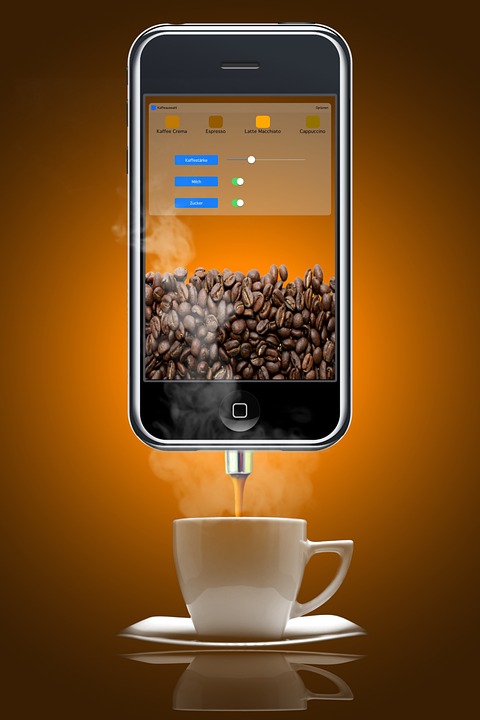The mobile app industry, a cornerstone of digital transformation, has seen incredible growth over the past decade. From simple utilities to complex ecosystems, mobile apps have reshaped how people interact, conduct business, and entertain themselves. As technology continues to evolve, what does the future hold for mobile apps? This article explores several emerging trends that are set to revolutionize the mobile app landscape.
1. 5G Technology: Unlocking New Potential
The rollout of 5G is more than just faster internet speeds; it’s a transformative technology that promises to redefine mobile experiences. With its high-speed connectivity and low latency, 5G will enable more sophisticated, real-time applications that weren’t possible before. For instance, Augmented Reality (AR) and Virtual Reality (VR) applications will benefit enormously from 5G, as it allows seamless integration of high-definition, interactive virtual elements into the real world. Moreover, remote healthcare, cloud gaming, and smart cities are sectors likely to see significant advancements driven by 5G.
2. Artificial Intelligence and Machine Learning
AI and machine learning have already made significant inroads into mobile apps, from personalized content recommendations to voice assistants like Siri and Google Assistant. However, the future holds even more potential. AI will become more integrated into the user experience, with predictive analytics offering personalized user journeys, automating mundane tasks, and improving app efficiency. Furthermore, AI-powered chatbots are expected to become standard, offering immediate customer support and enhancing user engagement.
3. Internet of Things (IoT) Integration
The interconnected world promised by the Internet of Things (IoT) is becoming a reality, and mobile apps will play a critical role in managing these interconnected devices. From smart homes where you control your thermostat and lights from your smartphone, to industrial IoT applications that monitor machinery in real-time, mobile apps will serve as centralized hubs for IoT ecosystems. Enhanced security and data privacy measures will be crucial as these systems become more widespread.
4. Blockchain Technology
Blockchain is often associated with cryptocurrencies, but its decentralized and transparent nature offers several intriguing applications for mobile apps. For instance, blockchain can revolutionize data security and identity verification methods. Consider apps for secure voting, transparent supply chain tracking, and decentralized finance (DeFi) applications. As data privacy concerns grow, blockchain technology can offer a more secure and transparent way to handle sensitive information.
5. Immersive Technologies: AR and VR
Augmented Reality (AR) and Virtual Reality (VR) are not new, but their integration into mobile apps is set to surge. These technologies offer immersive experiences that can be utilized in multiple sectors, such as education, retail, and entertainment. Imagine virtual classrooms where students interact with 3D models, or online shopping apps where customers can visualize products in their homes using AR. With the support of 5G, these applications will become more fluid and practical.
6. Wearable Technology
Wearables, such as smartwatches and fitness trackers, are becoming increasingly popular. Future mobile apps will need to integrate seamlessly with these devices to offer a cohesive user experience. Health apps will become more advanced, utilizing data from wearables to provide real-time health monitoring, fitness tracking, and even medical diagnostics. As the technology behind wearables improves, the range of functionalities that mobile apps can offer will expand.
7. Progressive Web Apps (PWAs)
Progressive Web Apps (PWAs) combine the advantages of web pages and mobile apps, offering a versatile and smooth user experience without requiring a download from an app store. PWAs are lightweight, quick to load, and offer offline functionality, making them an attractive option for developers and users alike. As browser technologies continue to improve, PWAs will become more prevalent and capable, possibly even replacing native apps in some scenarios.
8. Voice-Activated Technology
Voice activation is becoming an integral part of modern mobile app design. Smart assistants like Alexa, Google Assistant, and Siri have shown how convenient and efficient voice commands can be. Mobile apps are expected to increasingly incorporate voice activation features for a hands-free user experience. This will be particularly beneficial for applications in navigation, hands-free texting, and home automation.
9. Enhanced Security Measures
As mobile apps become more integrated into our daily lives, the need for robust security measures grows. Cyber threats are evolving, and security will remain a top priority. Future mobile apps will likely incorporate advanced security protocols like biometric authentication (fingerprint, facial recognition), end-to-end encryption, and multi-factor authentication to safeguard user data. Blockchain technology can also contribute to heightened security by decentralizing data storage and enhancing transparency.
10. Personalization and User Experience
User experience (UX) has always been a crucial aspect of mobile app development, and it will become even more important in the future. Utilizing AI and machine learning, apps will deliver highly personalized experiences based on user behavior, preferences, and habits. These tailored experiences will be driven by data analytics and will aim to provide the most relevant content, offers, and functionalities to each individual user.
11. On-Demand Apps
The gig economy has fueled the growth of on-demand apps, which connect users with services like ride-hailing, food delivery, and home services. This trend shows no signs of slowing down. Future on-demand apps will become more specialized, offering niche services with even greater efficiency and user experience. These apps will leverage AI for better demand forecasting, dynamic pricing, and route optimization to provide faster and more reliable services.
12. Multi-Platform Compatibility
As users increasingly interact with multiple devices, ensuring that mobile apps provide a consistent experience across platforms will be essential. Future apps will emphasize multi-platform compatibility, offering seamless transitions between smartphones, tablets, desktops, and wearables. This will allow users to switch devices without losing functionality or data continuity, enhancing overall user engagement.
Conclusion
The future of mobile apps is bright and full of possibilities. The convergence of technologies like 5G, AI, IoT, blockchain, and immersive media will redefine what’s possible and elevate user experiences to new heights. As these technologies evolve, developers will find innovative ways to solve problems and deliver value, making mobile apps even more indispensable in our daily lives. Keeping an eye on these emerging trends will be crucial for anyone involved in the mobile app industry, from developers and businesses to end-users and investors.


